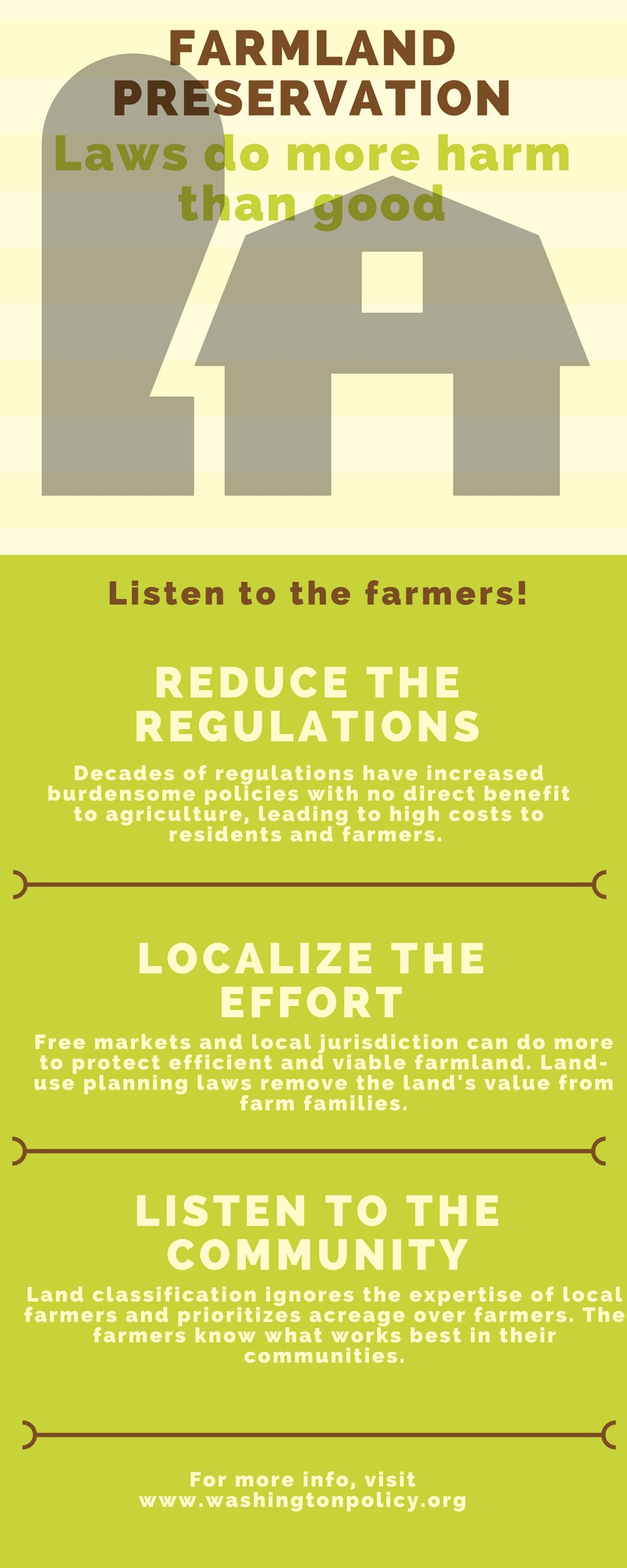![]() Download the full Policy Note.
Download the full Policy Note.
Key Findings
- Natural declines in farmland are used to justify excessive, unnecessary land-use regulations that are harmful to local economies and farm families.
- Pierce County and other areas of Washington cite disappearing farmland as evidence to support restrictive policies like the Growth Management Act. However, land-use regulations like GMA are not effective or necessary.
- Land-use regulations prioritize acreage over farmers, encouraging policies that save land without understanding the implications of excessive regulatory burdens on farm viability.
- Land ownership is the primary risk management tool available to farm families in managing their farm operations. Land-use planning laws remove the land’s value from farm families.
- From 2007-2012, cropland experienced a net increase of four million acres, with the majority converted from the federal government’s Conservation Reserve Program. The majority of acreage removed from cropland was converted to pasture, not development.
- Land-use controls in Oregon, Kentucky, and Florida illustrate the excessiveness and pointless existence of such programs. Local solutions with local input can do more to effectively protect community interests.
Introduction
As concerns over farmland escalate, and state regulatory pressure builds, adoption of additional land-use planning laws and regulations may be the straw that breaks the camel’s back, actually making it more difficult for local farmers. This Policy Note covers the background behind land-use planning, Pierce County’s farmland situation, statistics and trends regarding disappearing farmland, best – and worst – management practices from other states, and policy recommendations to protect Washington’s agricultural land. A more comprehensive Policy Brief describing this research is available here.
An understandable desire exists in many people to protect open space and farmland and the public places an inherent value in the protection of these lands. The value of open space, however, is impossible to quantify because much of it is subjective. To prevent development of these spaces, politicians turn to land-use planning laws.
Click here to read the in-depth Policy Brief on this subject.
![]() Download the full Policy Note.
Download the full Policy Note.




